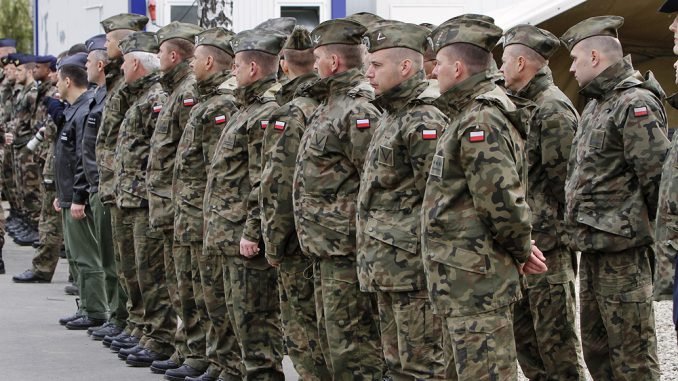
Lithuania’s Foreign Ministry dismissed the statements as offending.
“We must explain to our solders that they must support the Baltic states. And it is difficult now because we have problems with the Polish minority in Lithuania. It is a paradox, but now situation of Polish minority in Belarus is better than in Lithuania,” Jan Parys, director of the political office of the Polish foreign minister, said at a discussion in Kaunas on Friday.
Speaking at the event at the Vytautas Magnus University, he emphasized that the minority situation, which burdens the dialogue between Lithuania and Poland, is crucial for Polish leaders.
He criticized Lithuania for the situation of the Joachim Lelevel Engineering School in Vilnius, which provides education for Polish- and Russian-speaking students. The school expects to become an extended gymnasium, which would enroll students through grades 1 to 12. The school should be moved to new premises, for now it stays in the same facilities with the Antakalnio Progymnasium.
The school community has also protested against the movement and earlier plans to restructure it into a primary school, the issue has also been raised by Polish politicians. Following discussions, the Vilnius municipality expressed support to the community’s aim to become an extended gymnasium.
“Solution of the minorities problem, in particular the situation of education of Polish in Lithuania, would be a real condition for the good relations between our two countries. For the government in Warsaw, it is a priority now,” said Parys.
Asked by BNS to elaborate on his thoughts, the Polish diplomats refused to provide further comments.
Rolandas Kačinskas, political director at the Lithuanian Foreign Ministry, said that the criticism was offending.
“In essence, it is unfair to say that the human rights situation in the authoritarian regime, which is dubbed as the last dictatorship in Europe, is better than that in a strong democracy, such as Lithuania. This is indeed offending to all the Lithuanians present here. We have to avoid statements like this,” said Kačinskas.
He emphasized that the Joachim Lelevel Gymnasium was provided exclusively big funding for reconstruction of the premises. In his words, the problems the Polish minority is faced with has to do with the reform of the entire education system, therefore, it is a problem of the entire population, not just an individual community.
“The Polish community in Lithuania makes 1 percent of the global Polish diaspora. Nearly 20 percent of all Polish-language schools outside Poland are in Lithuania. The facts that should be known and communicated to the Polish community, as it sometimes seems that they are not misinterpreted and misleading,” said the diplomat.
Kačinskas said he was not denying the problems that exist, however, the problems, in his words, are being discussed in the society and a democratic process is in progress to solve everything.
At the discussion in Kaunas on Friday, Lithuanian and Polish diplomats and political scientists discussed the Lithuanian-Polish partnership and political guidelines.
The relations between Lithuania and Poland had chilled in the past year. After the main ruling party was changed in Poland more than a year ago, the Parliamentary Assembly of the Lithuanian and Polish parliaments has not yet met, and Lithuania’s President Dalia Grybauskaitė only met her new Polish counterpart, Andrzej Duda, for a bilateral meeting in late August in Croatia.
More active political cooperation has been burdened by Poland’s focus on the situation of the Polish national minority in Lithuania.

Be the first to comment